Live Poker vs. Land-Based Poker: Finding Your Perfect Playing Style
Live Poker is one of the most exciting beloved card games where players gather around a table, read each other’s expressions, and engage in a battle of wits. In this article, we’ll uncover the dynamics, strategies, and allure of live Poker that make it a cherished pastime for countless enthusiasts.
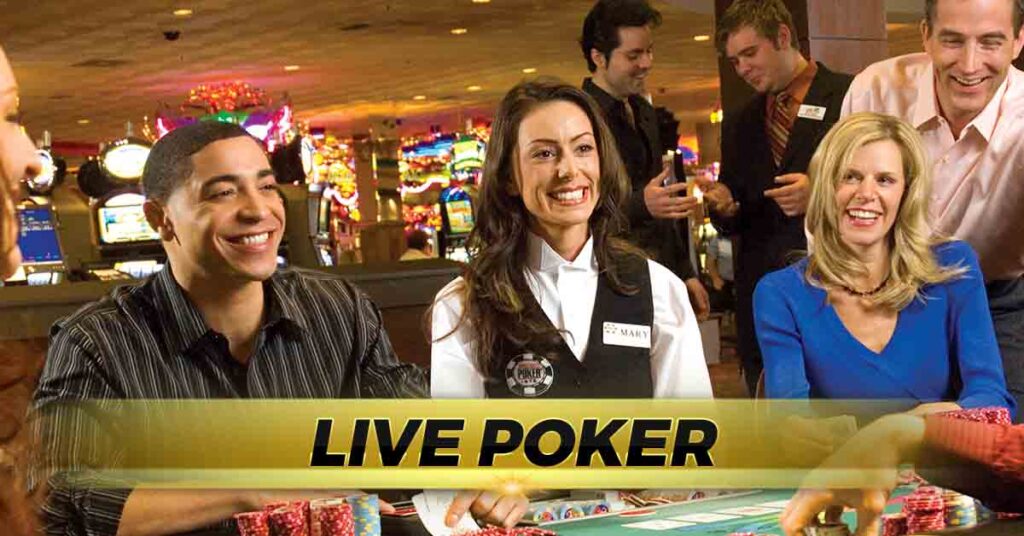
What is Poker?
Poker is a classic card game, online and traditional, that combines skill, strategy, and chance. It is played in various formats and variations, but the fundamental objective remains consistent: to have the best hand or to convince opponents that you do. Players typically compete for a central pot of chips or money, which is awarded to the player with the strongest hand or the one who successfully bluffs their way to victory.
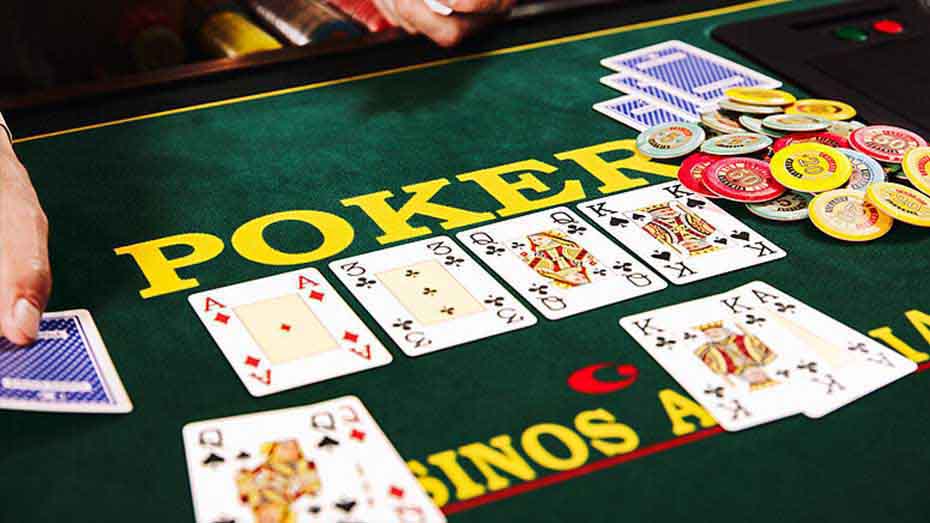
Live Poker Overview
Live Poker is an exhilarating and dynamic form of the classic card game that brings bettors together in a physical setting, fostering face-to-face interaction and intense gameplay. Unlike online Poker, which takes place in a virtual environment, live Poker is characterized by its vibrant casino ambiance, social dynamics, and the thrill of reading opponents’ expressions and body language.
The live game is typically played with a standard deck of 52 playing cards. Each player is dealt a hand of cards, and they make bets or raises based on the perceived strength of their hand. As the popular game progresses, bettors can choose to fold (discard their hand), call (match the current bet), raise (increase the bet), or examine (pass the action to the next player without betting). The rounds of betting continue until all active players have contributed equally to the pot or until only one player remains after others have folded.
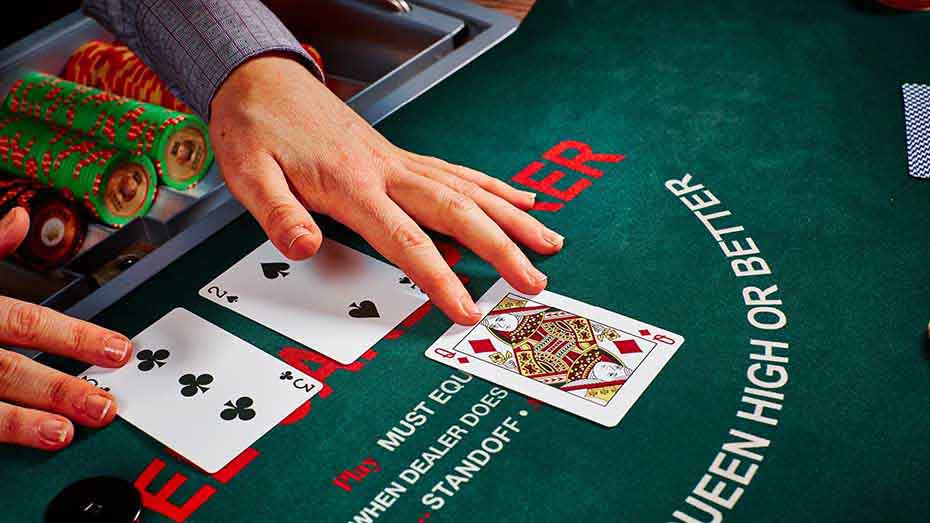
The core of Poker lies in the ranking of hands, which determines the winner at the showdown. The hands are ranked based on predetermined combinations such as pairs, three-of-a-kind, straight, flush, full house, and more. Players often use a combination of their own cards and community cards (cards shared by all players) to form the best possible hand. The strategic element comes into play when players must decide when to bet aggressively, when to bluff, and when to fold based on their assessment of their hand’s potential and their opponents’ actions.
How to Play Live Poker
There are many ways to play Poker that don’t involve going to a casino. Read on if you want to know how to play Poker in a casino.
Learning how to play live Poker involves understanding the game’s rules, hand rankings, betting structure, and strategies. Here’s a step-by-step guide to get you started:
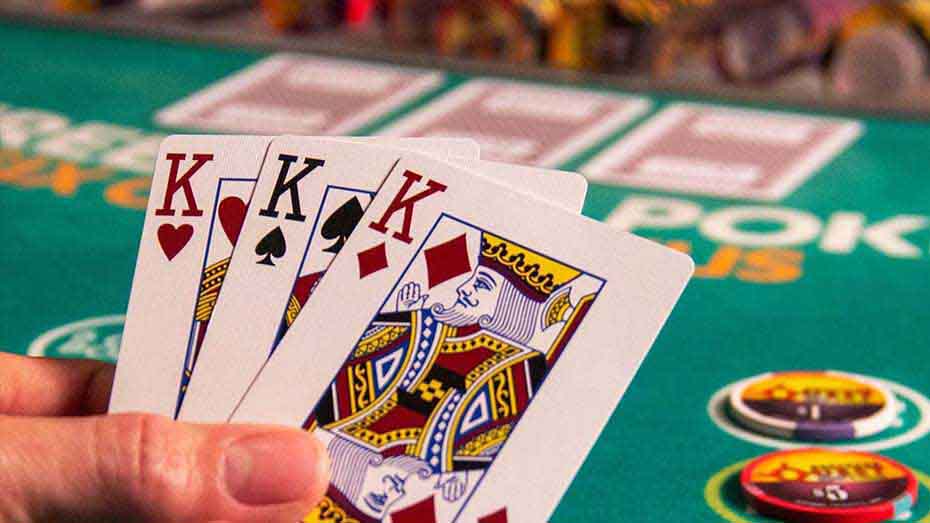
1. Understand Poker Hands: Familiarize yourself with the different poker hands and their rankings. From the highest-ranking Royal Flush to the basic High Card, knowing the hierarchy of hands is essential.
2. Learn the Rules of the Game: Each poker variant has its own set of rules. Common variants include Texas Hold ’em, Omaha, and Seven-Card Stud. Learn the specific rules of the variant you’re playing.
3. Get to Know the Table Setup: In live Poker, players sit around a table. There’s a dealer who distributes cards and manages the game. The player to the left of the dealer starts the betting, and the action moves clockwise.
4. Deal the Cards: Players are dealt a certain number of private cards, depending on the variant. Community cards are also dealt face-up on the table that everyone can use to form their hands.
5. Place Your Bets: The player to the left of the dealer places the first bet. The options available to players are to fold (throw away their hand), call (match the previous bet), raise (up the stake), or check (transfer the action to the next player). The rounds of betting continue until every player has placed an equal wager or folds.
6. Read Your Opponents: Pay attention to your opponents’ behavior, expressions, and actions. Look for “tells” that might reveal the strength of their hands. This skill becomes more valuable in live Poker due to face-to-face interaction.
7. Play According to Position: Your position at the table matters. Players in later positions have more information about opponents’ actions before making their decisions. Adjust your strategy based on your position.
8. Master Bluffing: Bluffing is a crucial aspect of Poker. Skillful bluffing can make opponents fold better hands, but timing and observation are key. Bluff sparingly and consider your table image.
9. Know When to Fold: Don’t hesitate to fold if your hand isn’t strong enough. Recognize when the odds are against you and save your chips for better opportunities.
10. Showdown and Winning: A showdown winning occurs if more than one bettor remains in the game following the last betting round. The strongest hand wins the pot when everyone has shown their cards.
Live Poker Etiquette
Live Poker has its own rules of behavior to make sure the games are fair and run well. Additionally, there are multiple live card spots where you can play, and all of them have the same set of rules about how to act.
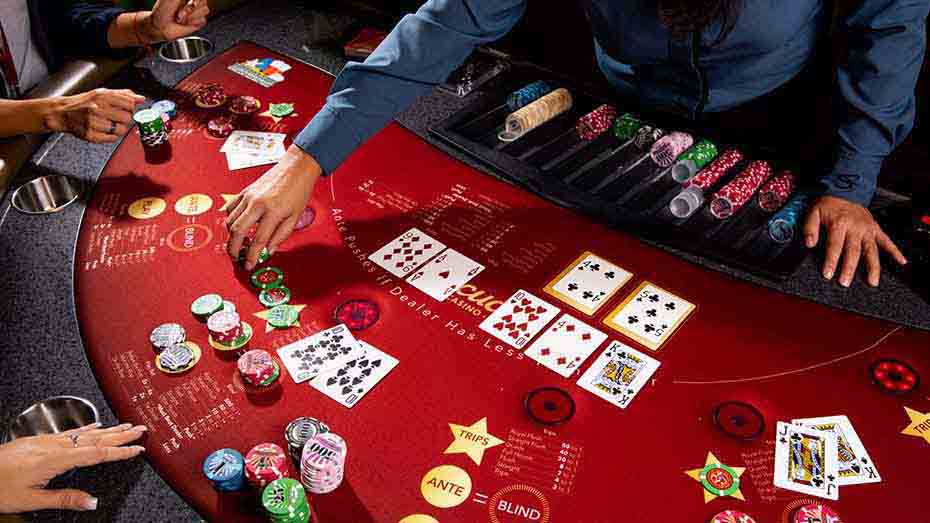
1. Don’t Slowroll
When a player waits a while before showing the winning cards at a showdown, this is called “slow rolling.” If you think you have the best hand, you should show your cards to the other players instead of waiting for them to show their bad hands first.
This rule is there because slow-rolling slows down the game and makes other players think they have won the pot when they haven’t. It is bad poker manners to make a player think they have the best hand and have gained the pot until the very end when you show them your winning hand.
2. Be quiet while playing
By talking about the cards you have in your hand, you can change the way that hand goes. Even if your cards are in the trash and you are no longer in the hand, you shouldn’t talk about the cards you were dealt while the hand is still in progress. This also means you can’t show any feeling when you get cards that might give you a good hand.
This rule is in place because the cards you talk about could affect how the hand goes since some of the other players could be drawing to the cards you are holding or have thrown away. This could make the other players change how they play the hand, so it is bad poker etiquette.
3. The one-chip rule
It counts as a call if you place one chip in the pot, regardless of its value, without verbally stating “raise” or the amount you wish to wager. The dealer will classify your move as a call. For instance, if the player in front of you raises to $10 and you place a $25 chip into the pot without proclaiming a raise. Your wager will be accepted as a call of ₱10, and you will receive ₱15 in change.
4. Avoid string betting
Put all of your chips in the pot at once if you don’t explicitly state your bet size. You cannot, for instance, push ₱25 into the pot and then take another ₱25 and push it in with a second move.
Tips for Live Poker
The majority of live poker games are more relaxed than those played online. The entry barrier is substantially lower, and many amateur players place excessive weight on their home game experience. Although it can be challenging, improving live casino poker performance is not impossible. Check out these five suggestions to improve your casino poker game.
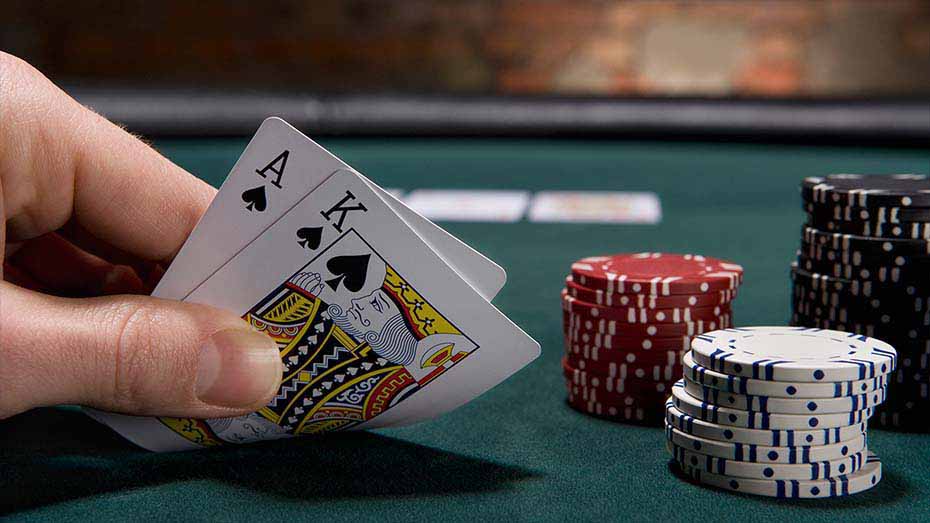
Tip #1: Game Day: Night vs. Day?
First things first, when do you begin to play? In certain places, like Las Vegas, most live games are available until extremely late at night or even always. Imagine the same two or three live poker pros remaining seated as dealers and casual players come and go and print money in between toilet breaks.
The majority of live poker professionals concur that evenings are the finest time of day playing live casino poker, mostly because of the following:
The average age of amateur players: Younger players are drawn to the night because they may be more eager to gamble. After all, they view their excursion to the casino as a laid-back evening out. If you’re lucky, they may have just watched a rerun of High Stakes Poker or Rounders, where Tom Dwan pulls off one of his elaborate but dangerous bluffs.
Gambling Atmosphere: Evening live poker games aren’t merely played for fun by recreational players. In the morning, they want to share a humorous tale with their coworkers. If you’re shrewd, you can give each of them the tale they want and let them “charge” what they want.
There is something to be said for late-night Poker on weekdays, even though weekends are undoubtedly the finest time for live poker games. Although it lacks the volume of people entering and leaving the room, it frequently has something else entirely: a deadline.
Tip #2: Getting a Good Seat
Now that you are aware of the optimum time to play, you can start looking for the greatest game even before you enter the casino. You must first be aware of the games that are offered. Nowadays, the majority of poker rooms feature a big screen that lists the games and the waiting list. However, some smaller rooms might have a whiteboard that is updated frequently. Before you even leave the house, you may use the SSBET77 App to see what games are now playing.
Look over the list and select the stakes and game that best suit your abilities and financial situation. If you have to wait, take a stroll around the space and check out every game. Make a mental note of which games appear to be easy and which appear to be difficult. It will be useful later.
It’s a good idea to purchase extra chips once you’ve started the game to have in your pocket in case you need to reload. Compared to needing to summon a chip runner every time you lose a pot, it is far simpler. Don’t neglect this advice because it will improve any good gamers’ hourly earnings.
Tip #3: Switching Seat
If you want to optimize your profit, you’ll need to move seats and switch games virtually every session. You probably aren’t moving around enough if you don’t play musical chairs in the poker room at least once per session.
When playing at a crowded table, stealing from the other player is the ideal position to be in. In other words, when the nitty player is in the large blind, you want to be in the cutoff or on the button.
These guys are unlikely to defend their blinds until they happen to have a powerful hand; thus, stealing the blinds even just once every hour will significantly enhance your win rate. Even if they do call ultimately, they will unavoidably play fit or fold post-flop, providing you the opportunity to either continue your bluff or fold before the stakes are too high.
If there’s a wild man on the loose at your table, try to pick a seat to his left so you can benefit from his antics. If you’re unlucky enough to be in his right seat, hold your ground until you can switch seats.
Tip #4: Tipping
The question of how much to tip for each pot has long been debated in the poker community. To the point where reading through discussion threads on poker forums discussing the topic might feel stale and Seinfeld-like. Before you pull a George, think about the following:
The basic: The basic fact is that in poker society, leaving a tip is a necessary evil. Therefore, choose an amount that will satisfy both you and the dealer. The reason why amateur players tip more than professionals is that they don’t care as much about how it will affect their overall revenue.
The law of the land: The majority of workers in the service sector, including waiters, chip runners, and dealers, rely on tips for the majority of their income. They often receive a minimum pay in addition. However, in some states, the minimum wage for “tipping” may be less than what other workers receive. Be considerate and keep in mind that for these people to be effective at their jobs, they need to be able to afford to eat and pay their rent.
Your reputation: As was already established, having friends in the poker industry pays off, and the greatest method to win over the casino personnel is to be a generous tipper. Being a good tipper won’t, obviously, grant you better cards or any other unfair advantages in the game, but it can grant you access to some fantastic benefits that less generous players rarely experience.
Online Live Poker vs. Traditional Land-Based Poker
Live Poker and land-based Poker are two different ways to enjoy the classic game of Poker, and each gives you a different set of things to do. In live Poker, players are immersed in the lively atmosphere of real-life casinos. The sounds of chips hitting each other, and cards being shuffled, along with the palpable excitement, create an environment that is hard to recreate. This method works best when people talk to each other face-to-face, which lets players read their opponents’ faces and fight mental battles in real-time. The social aspects of live Poker are one of its biggest draws. When players are in the same room and talking about things other than the cards on the table, they feel like they are part of a group.
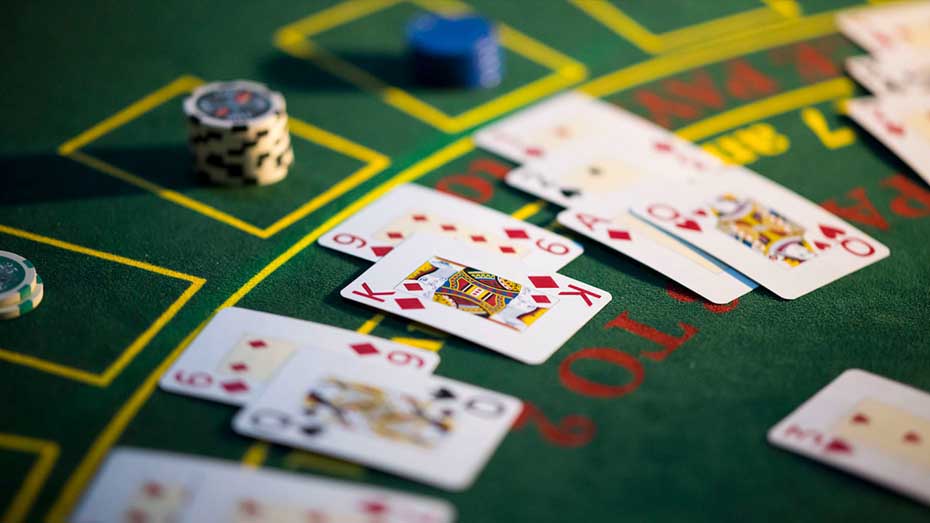
On the other hand, land-based Poker, which is often played at online casinos, is easier and more accessible, which makes it more appealing to a wider range of players. The comfort of playing in one’s own place and the freedom to choose when to play are both big benefits. Land-based Poker brings the game to the player, so they don’t have to go to a casino. It can be done on a desktop computer or a mobile device. Even though it doesn’t have the same feel as a real casino, it makes up for it by offering a wide range of games and letting players focus on the game itself. Also, land-based poker sites often offer bonuses and other incentives that make the game more fun overall.
FAQs
Conclusion
Live Poker is an example of strategy, psychology, and social interaction; it’s more than just cards and chips. Live or Online Poker is a perennial favorite among players due to the physical feel of touching cards and chips and the thrill of outwitting opponents.












